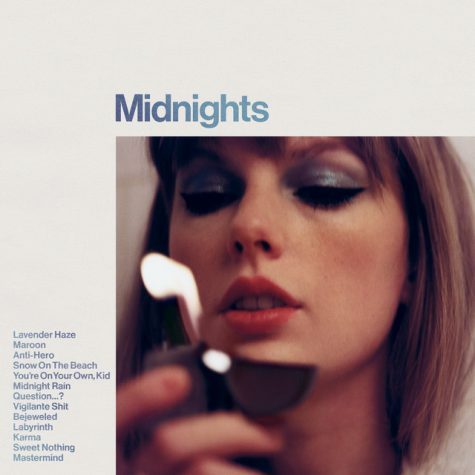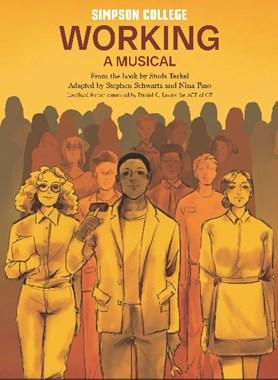The mayhem of “Midnights”
November 2, 2022
While August slipped away into a moment in time, Taylor Swift announced her 10th studio album, “Midnights,” at the 2022 MTV music awards. This release would mark the end of the Red (Taylor’s Version) era.
In an Instagram post after the awards, Swift wrote: “the stories of 13 sleepless nights scattered through my life, will be out Oct. 21. Meet me at midnight.”
Since the announcement of “Midnights,” the world has not been the same, and mayhem ensnared upwards of 64 million of Swift’s listeners.
In true Taylor Swift fashion, she used a long, drawn-out marketing tactic to ramp up the album’s engagement. Namely, she started a short reel series, “Midnights Mayhem with Me” on Oct. 7, which was 13 days before the release of “Midnights”.
In these reels, she would announce the name of one song on the album with a bingo cage. Each title was released at random. Chaos continued to ensue.
Once the waking hour of Oct. 21 rolled around, this marketing tactic proved wildly effective. Spotify tweeted not even 24 hours after the release that “Midnights” was record-breaking:
“And before the clock could even strike midnight on October 22nd, Taylor Swift broke the record for most-streamed album in a single day in Spotify history.”
Never in our wildest dreams did we think this record would be broken. This only proves that Taylor Swift truly is one of the top media moguls in the music industry.
The album opener, “Lavender Haze,” is named after the common phrase from the ‘50s, which describes the feeling of falling in love. This is an incredible opener for “Midnights” as it not only sets the more electric-pop production of the album but addresses her relationship with Joe Alwyn in a way “Lover” could never. It shines a light on how she wants her relationship to be perceived: with no public input. Swift “just wants to stay in a lavender haze.”
This is the song that sets the tone for the album. Self-perception, love, life navigation, etc. are reasons one might toss and turn for hours on end throughout the night. Swift managed to give us 13.
“Snow On The Beach (feat. Lana Del Rey)” seems like a continuation of “Lavender Haze” because of how it touches on the oddities of what it means to fall in love, “it’s like snow on the beach, weird but fucking beautiful.”
“Labyrinth” tackles the same feeling of falling in love but looking at the self-navigation required. It looks at past traumas and past experiences Swift has experienced, and the song tackles the anxiety that comes along with falling in love and what it can come down to in the end.
Co-written with Joe Alwyn, “Sweet Nothing” looks at what love looks like when all of the romantic turmoil is said and done. It paints a picture of what it looks like to finally feel settled and not have to worry about anything, i.e., Swift and Alwyn’s current relationship.
“Maroon” and “Vigilante Shit” address the exact antithesis of the Alwyn x Swift love cycle: the despairing life cycle of a short-lived relationship and the aftermath of such. “Midnight Rain” alludes to the same concept, only in reverse.
In a similar light, “Karma” can be linked to the 2009 VMA awards, when Kanye West interrupted Swift’s acceptance speech for “You Belong With Me” being awarded music video of the year. If you look at the successes of Swift and the current, what can be best described as a kerfuffle, you can see how hard karma comes back to bite. “Mastermind” continues this idea through the idea of being a master manipulator, the puppeteer of the whole show.
“Bejeweled” also falls under this anthesis, with it being the realization of self-worth, being able to shine all on your own, and uninhibited ambitions being able to come to fruition.
But, of course, being able to dive into self-actualization and analysis can make you question your self-worth. “Question…?” implies Swift questioning what choices she has made and the consequences of such. Not just in a romantic way, which many would say is the primary naysay for Swift, but in a platonic manner as well.
We know all too well what it looks like when we over-analyze things. I mean, we’re college students, after all, and we’ve all had completely earth-shattering crises that make us question our self-worth.
One of the titular songs on the album, “Anti-Hero,” tackles this idea through the conceptualization of the saying “it’s not you, it’s me” because we often look at ourselves in bright light. But, when the opportunity to question ourselves comes into the equation, maybe we realize we’re the problem after all.
Basically being a sister song to “Anti-Hero,” “You’re On Your Own, Kid” is one of the other leading songs on the album. It takes a glance at the start of it all; it brings into play the “who,” “what,” “where,” “why,” and “how” that brings all of the sleepless nights together.
Of course, I have to mention the bonus tracks of the album, which only exacerbate the ideas conveyed in the main 13 songs. These songs only add to the “Midnights” experience, giving us all the more reason to toss and turn at night (and day, if you’re anything like me).
Controversially, I think this is one of Swift’s best albums. It encapsulates her pop vibes with her existential lyricism. While it doesn’t have the same production as the quarantine albums “Folklore” and “Evermore,” the fact that the most iconic parts of all of the Taylor Swift albums are wrapped up into one album is not negated, only pushed further.
While many may believe “Midnights” is more so “MID-nights,” we can see that this is truly the epitome of Taylor Swift, whether we like it as consumers or not, and it should be no surprise that it’s as successful as it is.








